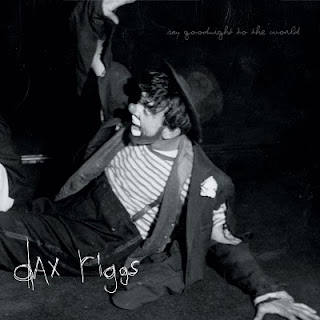Harvey Milk - A Small Turn of Human Kindness
7.33/10
Musically, A Small Turn of Human Kindness is unlike anything I've heard recently. The melodies are all played on extremely thin guitars with almost no bottom end and don't even really sound like melodies, closer to major scales with a few wrong notes most of the time. The drums are standard sludge faire - very low tempos and half time drops everywhere. The vocals are a strange mix of mere shouting, lots of sustain and a minimal effort to to follow the melodies. Its pretty similar to early SWANS stuff but more shout-y and less Tibetan monk. The bass is barely audible and follows the melodies almost exactly. There are plenty of bass drops and stop-start sections as well. Most of the play time, this record is sludge metal at its most codexical, but there is something missing: it sounds as if the entire midsection of the band has been cut out, like there is a track or 2 missing. In the latter 2 tracks some synths and pianos are used to greatly confusing and novel effect, as well.
In terms of production, A Small Turn of Human Kindness is well done on almost all fronts. Everything is audible and the drum kit has a special sense of room that makes it stand out as more "live" than the rest of the band. Every note the guitar and bass play are distinguishable, but they have absolutely NO BALLS until the disc's last 2 tracks. There are some really awesomely heavy riffs and rhythms happening thru this record but they don't come off as such because they have no low end whatsoever for most of the record.
I will be blunt about originality: I'm sure I have never heard a record like this, but I'm confused about whether that is a good thing. It would be a great thing if it were given the balls it deserves production-wise. Like most of the stuff I review on this site, its not at all for the mainstream metal listener; this is a record that will probably confuse you at first, and if not you will be bored right out of your skull. It will be right up your alley if you are mainly into heavily experimental metal (ie. Sunn O))), Dillinger Escape) because it takes many big leaps in terms of instrumentation and despite the misjudgements in envelope, its really innovative and sticks together as a record in its own weird, depressing way if you are willing to take it in as a whole.
Production - 6
Composition - 7
Originality - 9
Overall 7.33







.jpg)




